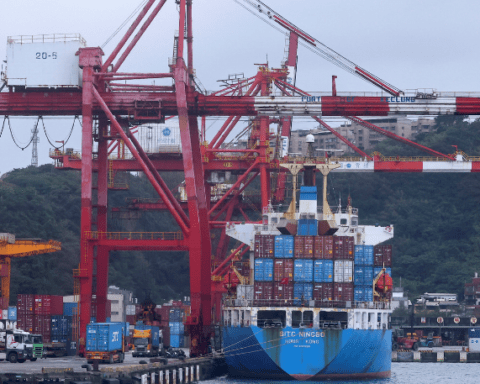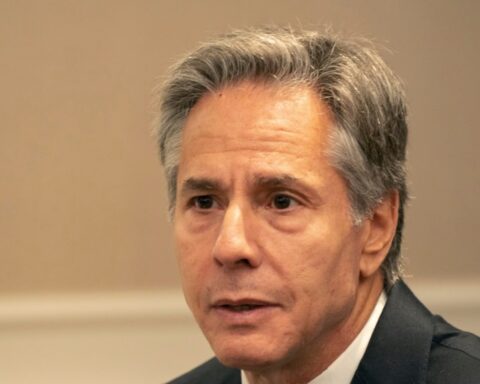This week, for the first time since Russia’s invasion of Ukraine more than nine months ago, they were supposed to meet: technical experts, engineers, and diplomats from Russia and the United States trying to hammer out the nitty-gritty details for inspections of the warheads, missiles, and silos limited by the last remaining treaty on the world’s two largest nuclear arsenals: New START.
The meeting didn’t happen. That means inspections won’t happen. And that means arms control experts are increasingly worried not only about the durability of the existing pact but also about what comes next when it expires in a little over three years.
“It sends a really troubling signal regarding the political will to get back into…a New START successor treaty,” said Lynn Rusten, a former White House and State Department arms control expert who participated in the tough negotiations on the original treaty, which was signed in 2010. “It will be impossible to have a new conversation about a new treaty and strategic stability if the Russians are going to inject Ukraine into the agenda.
“I’m worried it’s a bad harbinger,” she said.
“People were glad [the meetings] were resuming, and now this?” said Daryl Kimball, executive director of the Arms Control Association, a Washington think tank and advocacy group. “It doesn’t bode well for the future.”
“One thing appears reasonably clear,” said Nikolai Sokov, a former Russian Foreign Ministry official who is now a fellow at the Vienna Center for Disarmament and Non-Proliferation. “This decision did not originate at the [Foreign Ministry]. They were clearly caught off guard and had to develop a line to explain that decision.
“The postponement…is the focus of things that have been brewing for quite a long time,” he said.
‘Geopolitical Realities’
New START, which was extended for five years in 2021, puts a limit on the size of Russian and American nuclear warheads and delivery systems.
It also spells out a strictly defined set of inspections in which each side can travel to the other’s country, and use flashlights, tape measures, cameras, and other equipment to check and verify compliance with the treaty. Each country gets 18 on-site inspections each year, and the two exchange information like declarations of the number of deployed warheads or deployed delivery vehicles — things like submarines, trucks, and strategic bombers — as well as telemetry data and notifications of when a test launch occurs.

According to the U.S. State Department, the two sides have conducted 328 on-site inspections to date.
But the last time there was an inspection was in early 2020, just before the COVID-19 pandemic sent the world into lockdown. The two sides agreed to suspend the inspections.
The treaty also provides for twice-annual meetings of the Bilateral Consultative Commission (BCC), where technical experts meet – usually in Geneva – and discuss granular details of the treaty.
The last time the commission met was late last year, according to the State Department — well before Russian President Vladimir Putin ordered a full-scale invasion of Ukraine on February 24, a move that sent relations between Moscow and Washington, and the West more broadly, plummeting further. They had already been marked by some of the highest tension seen since the Cold War.
In recent weeks, even amid the acrimony and angry rhetoric over Russia’s war on Ukraine, U.S. and Russian diplomats had been quietly planning to reconvene the BCC, to try and restart the treaty inspections. U.S. officials had even agreed to move the meeting from Geneva to Cairo, due to Russian allegations that Switzerland’s stance on the Ukraine war meant it could not be considered neutral territory.
On the eve of the talks, however, Russia announced it wouldn’t attend, surprising the United States.
In comments reported by the newspaper Kommersant on November 29, Russian Deputy Foreign Minister Sergei Ryabkov said that Ukraine was at the heart of the decision.
“There is, of course, the effect of what is happening in Ukraine and around it,” he was quoted as saying. “I will not deny it. Arms control and dialogue in this area cannot be immune to what is around it, and the bigger picture – which is rather complex and on the whole disturbing– has affected this.”
Russia’s firebrand Foreign Ministry spokeswoman later elaborated further, lashing out at the United States and hinting at the animus over the Ukraine war.
The talks could not be separated from “geopolitical realities,” Maria Zakharova said, and the decision to postpone took into account “the extremely negative situation in Russian-American relations that was created by Washington and continues to deteriorate steadily.”

State Department officials confirmed the postponement, and the White House later confirmed that Russia had sought to add Ukraine to the agenda, which had been set weeks earlier.
“All topics that Russia had put forward were on the agenda for the meeting,” national-security spokesman John Kirby said in an e-mail to RFE/RL. “Russia’s postponement of the BCC was a choice to forgo discussion on all the priority issues they had identified and placed on the agenda, as much as it was a decision to avoid engaging on our priority of resuming inspections.
“These discussions are on topics of arms control, not Ukraine,” he said.
Sokov said the last-minute nature of the cancellation suggested that the decision to postpone the November 29 meeting, with no new date set, came from Putin’s administration.
Russian officials also cited another, secondary reason for pulling out of the talks: What they said was U.S. unwillingness to discuss Russian concerns about how the United States is converting its B-52H heavy bombers and Trident II submarine launchers to make them unable to fire nuclear missiles.
But those are long-standing, not new, concerns that the Russians have raised in the past, Rusten said. Moreover, the place to at least discuss the concerns is with the BCC, she said, which makes the decision to not participate even more perplexing.
‘Technical Issues Become Political’
Adding to the acrimony was an incident over the summer involving a Russian plan to conduct on-site inspections of U.S. locations. According to people familiar with the matter, the Russian effort got tied up in July not long before its scheduled start when some European countries did not grant permission for a Russian plane carrying inspectors to fly through their airspace en route to the United States. That was essential, since commercial flights to and from Russia – which Russian inspectors have used in the past – have been all but banned due to Western sanctions.
The inspection was ultimately called off.
“To me, it sounds like it was not well-handled, and perhaps all the legwork to grease the wheels hadn’t occurred,” Rusten said. “My impression is it was a classic bureaucratic snafu in an unprecedented situation.”
Then, in August, the United States sought to conduct its own inspection of Russian sites. Moscow ended up refusing, though it’s unclear exactly what explanation was provided to U.S. officials.
“Of course, in a highly charged atmosphere, technical issues become political,” Sokov said.

Still, where this week’s BCC meeting is concerned, the eleventh-hour decision to postpone suggests it was a decision made “at the political level,” in Russia, Kimball said, either at the Ministry of Foreign Affairs (MFA) or the Kremlin.
“My reading of this is it’s just more than minor complaints,” Kimball said. “This is a debate within the Kremlin, and maybe with the MFA, about whether engagement with the U.S. on New START should be linked to the war in Ukraine.
“But it’s unclear if it’s just a delay or a more significant policy shift,” he said.
Many experts say it’s likely that the two sides will find a way to meet, probably after the New Year, and the issues surrounding overflights, visas, and other sanctioned-related complications will be sorted out. And then inspections can resume.
However, if that doesn’t happen, it will pile pressure onto the effort to negotiate a successor agreement to New START, which expires in February 2026 and cannot be extended again.
“Russia — Putin — still understands that limits on nuclear arsenals remain in Russia’s interest, but clearly they’re doing some rethinking in how they’re going to deal with this,” Kimball said.
While U.S. President Joe Biden’s administration made extending New START an immediate priority once he took office in January 2021, U.S. officials have sent more ambiguous signals about the urgency of a new treaty.
“The broader issue is that the White House doesn’t appear ready to negotiate” a successor treaty, Rusten said. “You could put more blame on the U.S. for not being ready to negotiate a successor treaty.
“There’s a real risk that the treaty will lapse, and there won’t be a successor treaty available,” she said.
“Even in the worst times of the Cold War, the U.S. and Russia were able to sit down and talk about issues of arms control,” Kimball said. “Neither side should be preventing linkages between nuclear war and this conflict in Ukraine.”






